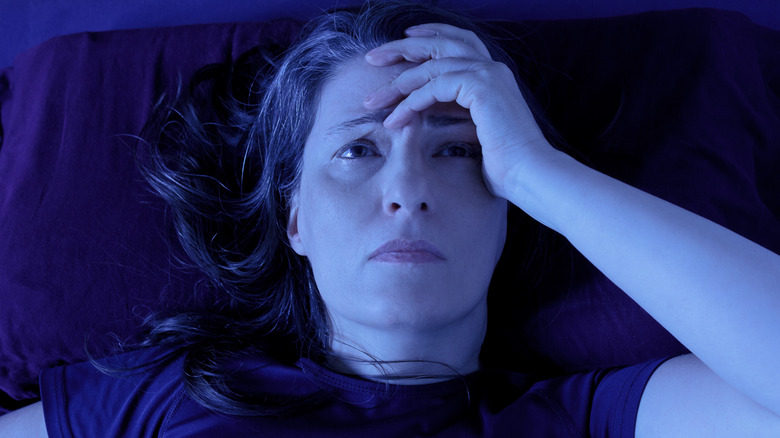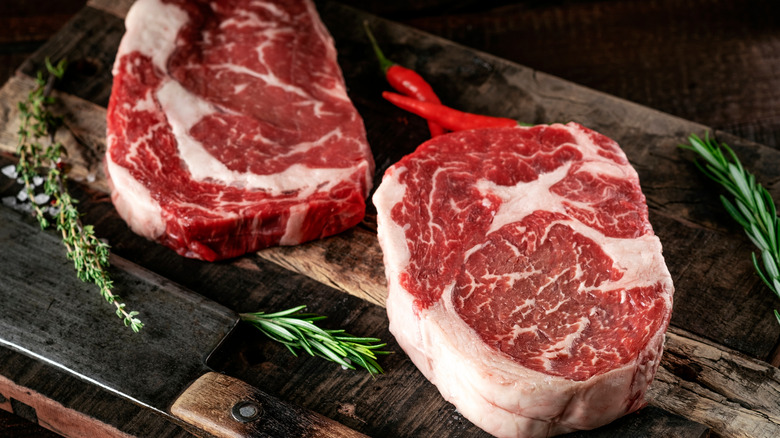The Mineral You Need If You Have Restless Leg Syndrome
Restless leg syndrome (RLS) is a neurological condition that causes an unpleasant sensation in the legs and an uncontrollable urge to move them. Also known as Willis-Ekbom disease, restless leg syndrome usually occurs while sitting or lying down and can often make it difficult to fall and stay asleep (via Healthline). While there are many potential causes for restless leg syndrome, one of the most common is iron deficiency, which occurs when there are low levels of iron in the body.
In fact, multiple studies have shown that low iron levels are closely linked to worsening symptoms of restless leg syndrome. "Low iron levels can affect how the brain processes the sensations that lead to those RLS symptoms," sleep specialist Dr. J. Andrew Berkowski, M.D., told the Cleveland Clinic. "And iron levels drop at nighttime, which is one reason why RLS is worse at night." However, if you are iron deficient, taking iron supplements or eating iron-rich foods can help reduce these symptoms.
How to add more iron to your diet
If you have restless leg syndrome due to an iron deficiency, you can easily add more foods to your diet that are high in iron (via Everyday Health). For instance, you can help boost your iron levels by eating red meat and eggs. Two large eggs contain around 1.68 milligrams of iron, while 4 ounces of ground beef offers 2.63 milligrams. Seafood, including oysters, mussels, and clams, can also be a great source of iron. In fact, five raw oysters contain 3.23 milligrams of iron, making that serving 40% of a man's recommended daily iron intake.
There are also many plant-based sources of iron you can try if you're vegan or vegetarian. Chickpeas, pumpkin seeds, lentils, black beans, spinach, and edamame are all rich in iron, the last source containing up to 9 milligrams of iron per serving. The exact amount of iron you should be getting largely depends on your age and gender. Nonpregnant women between the ages of 19 and 50 should be consuming 18 milligrams of iron per day, while men aged 19 or older should receive 8 milligrams of iron every day, according to Everyday Health.


